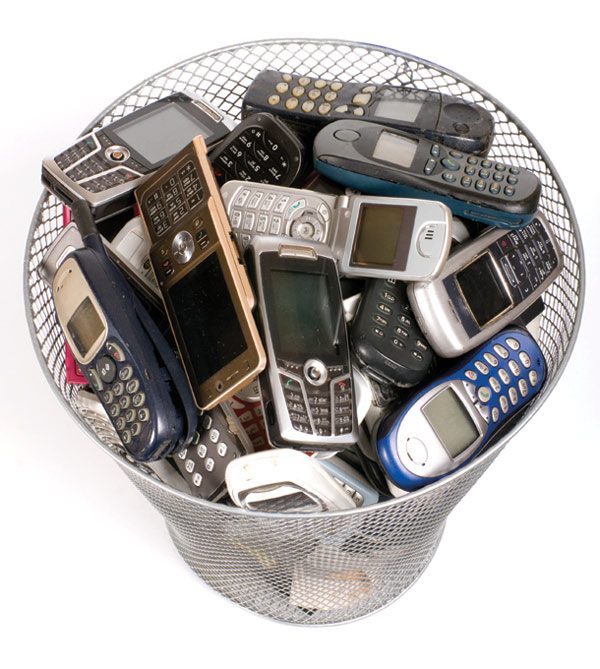How to save the world from your old gadgets.
It’s hardly news that technology moves forward quickly, but what should we tech savvy, first adopters do about our growing collection of obsolete gadgets while still being kind to the planet?
Every year, companies dazzle consumers with newer, sleeker and even more versatile versions of their best-selling gadgets—Motorola’s Droid X2 was released less than 13 months after the Droid X, and Apple released its iPad 2 only a year after the original. This whirlwind pace comes with a hidden price tag, as the EPA estimates that North Americans discard 125 million phones each year, making a total of 65,000 tons of landfill. A 2009 EPA survey showed almost 30 million computers discarded that year. Altogether, discarded electronics added up to 2.37 million short tons, and the pace has not abated.
Virtually all of that waste goes straight into landfills, where metals and chemicals from the devices will have decades to ferment into a toxic cocktail. It was generations ago that consumers learned how to responsibly manage the waste they produced after each trip to the grocery store, but society is just beginning to pay attention to the emerging problem of e-waste.
Fortunately, as e-waste is becomes more prominent, so too is e-cycling. “The majority of people have at least one old cell phone in a drawer,” says Esmeralda Rodriguez, product manager at NextWorth, one of many new startups taking aim at the problem of e-waste. “There are all these products that, if they were back in the market, someone could have bought that instead of buying a new one, but because it’s in the drawer it just ends up in a landfill.”
Companies like NextWorth divert old electronics to new buyers and help consumers find the best trade-in deals so that fewer gadgets end up in the trash. If everyone who used their phone or iPod for two years before getting a new one traded it instead of throwing it away, Rodriguez explains, that two-year lifespan could easily become a four-year lifespan, meaning half as much waste.
Even electronics with no trade-in value to anyone shouldn’t simply be dumped. Though the EPA reports that less than 30 percent of all discarded electronics are recycled, a lot of major retailers now offer electronics recycling. Most municipal recycling centers can point in the direction of a certified electronics recycler even if they themselves don’t accept the devices.
So, how do you make sure you’re being a responsible post-consumer?
Curve offers a few tips:
1. Don’t just let old gadgets collect dust.
Look around your home for any old gadgets that aren’t being used and check e-cycling sites to see if they have any value.
2. Take good care of your devices and assume they will have at least one other owner.
Dents and scratches don’t seem like a big deal, but the better shape your gadget is in the more likely it will end up in someone else’s pocket rather than a garbage can.
3. Before jumping on the hottest new gadget, research if it’s really worth replacing your old one.
Often, even a heavily marketed upgrade will only feature minor improvements and might be aimed at those who didn’t buy the previous device rather than those who did.
4. When you do make a new purchase, always check to see if you can trade in your old device.
Not only does this reduce waste, it usually reduces your bill as well.
5. When you decide to trade in something old for something new, do it quickly.
Dated devices are always the most valuable in the first month or two after the next generation enters the market.
6. Shop around for your best e-cycling options.
Consider both online and physical retail outlets and see who offers the best deal.
7. Never just throw something away.
Check with local recycling centers about proper facilities for recycling unwanted electronics, or check online.
8. Don’t just restrict your e-cycling habits to phones and computers.
Even little things like headphones and phone chargers can find new life on the secondhand market, or at least should be properly recycled.
9. As with any green issue, awareness is the number one priority.
As soon as you’ve traded or recycled your unused electronics, make sure friends and family members think to do the same.
10. Very few electronics should ever be disposed of in the trash.
Consider this an absolute last resort. Even a few more months in the drawer is preferable. (nextworth.com)
